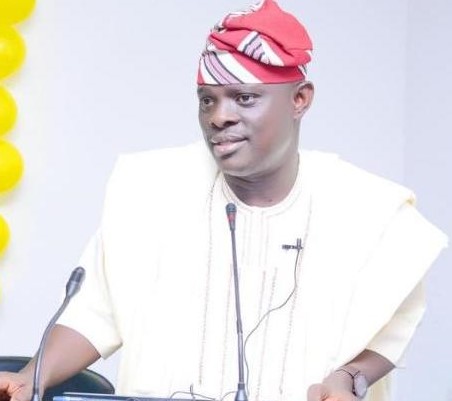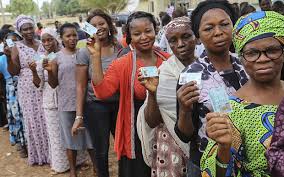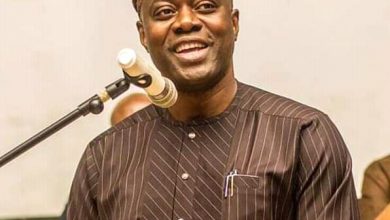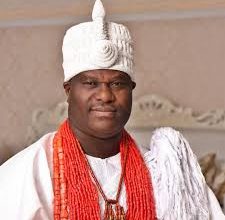
For the records: Being the paper presented by Dr Mutiu Olaleke Agboke, Resident electoral commissioner, INEC Osun state at the 2nd year anniversary of the association of retired officers of department of state services in collaboration with INEC Ogun state
Protocols
INTRODUCTION
Permit me to express a great pleasure for the invitation to address this very important segment of our society – the Retired Officers of Department of State Services (ARODSSON) particularly on electoral matters.
This lecture is not only appropriate but very timely as the 2023 General Election is some days away (45 Days i.e. Saturday, 25th February, 2023). As we are all aware, the 2023 general election is a transitional election associated with heightened tension and anxiety. However, judging from the successful conduct of the 2022 Ekiti and Osun State Governorship Elections, there are high hopes and expectations from Nigerians that the Independent National Electoral Commission (INEC) will conduct free, fair, credible, inclusive and conclusive election in 2023. Meanwhile, this mandate of the Commission cannot be achieved without the support of Nigerians.
Let me also congratulate the organizers of this lofty event, for choosing Voter Education as the theme of their 2nd Annual Lecture. This effort will no doubt go a long way in education of participants on the implications of 2022 Electoral Act on 2023 General Elections.

The electoral process is an ideal and integral part of the democratic process, whether in developed or developing nations. A malfunctioning electoral system inadvertently produces maladministration or bad governance.
Credible elections are among the chief ingredients of a good democratic system. Democracy is unsustainable without free, fair, credible, inclusive and conclusive elections. Consequently, periodic election is one of the Democratic principles that attract serious attention from all Stakeholders and is sacrosanct to democratic consolidation.
The administration of the electoral process by an Election Management Body in any democracy (INEC in Nigeria) has been categorised into 3: pre-election, election and post-election period, also known as the electoral cycle and these activities are carried out using a chronological calendar or timelines.
One of the key components of the electoral process is the electoral legal framework. This is the foundation of the whole process and INEC activities are premised upon the legal instruments such as the 1999 Constitution (as amended), the Electoral Act 2022 and other administration (legal) instruments.
The inadequacies of these legal instruments could be a causal factor of electoral risk and consequently become a treat to the successful conduct of free, fair, credible, inclusive and conclusive election; hence the review of these instruments at regular intervals to meet prevailing electoral exigencies.
On 25th of February 2022, President Muhammadu Buhari signed into law the much awaited 2022 Electoral Act Amendment Bill. The 2022 Electoral Act repeals the Electoral Act No. 6, 2010 and is intended to bring innovations to the regulation of Federal, State and Area Council elections in Nigeria.
As Nigeria approaches its 2023 general elections, the enactment of this law has come at the right time. This paper will consider some salient issues in the new Electoral Act and the possible implications of these changes on the forthcoming 2023 general elections.
MAJOR CHANGES INTRODUCED BY THE ELECTORAL ACT 2022
Financial Independence to INEC
Section 3(1) of the new Act establishes the Independent National Electoral Commission Fund, wherein payments from the Federal Government, investments made from the fund and other aids and grants shall be paid to enable the Independent National Electoral Commission to perform its statutory functions. Furthermore, the Act stipulates that election funds due to the Commission for any general elections are to be released not later than one year before the next general election [Section 3(3)].

This provision grants financial autonomy to the Commission, as it may now receive funds for the conduct of elections directly as opposed to getting funds subsequent to vetting by the Ministry of Finance as provided under the former Act.
This is a welcome development because it will solve the logistics problems usually faced by INEC. One can easily recall the logistics problems faced by INEC in 2019 due to the late approval and release of funds to the Commission.
Extension of Timeframe for Publication of Election Notice
The 2022 Act provides that the Commission shall not later than 360 days before the day appointed for holding of an election under the Act, publish a notice in each State of the Federation and the Federal Capital Territory stating the date of the election and appointing the place at which nomination papers are to be delivered [Section 28(1)]. This notice is to be published in each constituency in respect of which an election is to be held [Section 28(2)].
This is in contrast to the provisions of the erstwhile Electoral Act which provided that the Commission should publish this notice not later than 90 days before the date of election. The effect of this extension of time is to give the Commission more time to prepare for the election and also give the political parties no excuse as regards the candidacy politics that comes with choosing a candidate and preparing for a campaign.
However, for by-elections the new act retains the same provision as the old Act, as the timeframe for publishing a notice stating the date of by-elections is 14 days.
Encouragement of Early Party Primaries
Under the new Act, political parties are mandated to submit the list of their sponsored candidates who have emerged from valid primaries conducted by the party, not later than 180 days before the date appointed for a general election [Section 29(1)]. This is in contrast to the former Act which prescribed that this submission should be done not less than 60 days before the date of general elections. The change in the timeframe to submit the names of party candidates from 60 to 180 days makes it compulsory for political parties to conduct their primaries early enough to meet up with submission of the list of candidates at least 180 days before the general elections. It also gives room for completion of all litigations arising from conduct of party primaries before the election.
Extension of Timeframe for Campaigns by Political Parties
The new Act provides that the period of campaign in public by every political party shall commence 150 days before polling day and end 24 hours prior to that day [Section 94(1)]. This is different from the provisions of the former Act which prescribe that campaigns shall commence 90 days prior to polling day and end 24 hours prior to that day. The impact of this provision is the extended time given to political parties to disseminate their campaign messages to the electorates and the corresponding extended time for the electorate to decide what party and candidate would receive their votes.

Provision for Central Electronic Voter Database
The new Act provides that the Commission shall keep the Register of Voters at its National Headquarters and other locations, provided that the Register shall be kept in electronic format in its central database, in addition to being kept in manual or hardcopy format [Section 9(2)]. Under the former Act, this Register was kept in manual or hardcopy format only.
This provision is laudable as it will promote transparency and effectiveness in the Commission’s record-keeping and in tracking the number of registered voters who will be voting in the upcoming elections, thereby curbing illegal voting by non-registered voters.
Revision of Definition of Over voting
Under the new Act, where the number of votes cast at an election in any polling unit exceeds the number of accredited voters in that polling unit, the Presiding Officer shall cancel the result of the election in that polling unit [Section 51(2)] “Number of accredited voters” refers to the number of intending voters accredited to vote in an election on election day (Section 153). Under the 2010 Act, it is when the number of votes cast at an election in any polling unit exceeds the number of registered voters in that polling unit, that the Presiding officer shall cancel the result of the election in that polling unit.
Based on the provisions of the new Act, ‘overvoting’ would mean where votes cast at a polling unit exceeds the number of accredited voters and not the number of registered voters as provided in the former Act.
The Independent National Electoral Commission (INEC)’s Power of Review
Under the new Act, the INEC has the power to review the final decision of the Returning Officer in respect of questions of unmarked ballot paper, rejected ballot paper, declaration of scores of candidates and the return of a candidate, within 7 days of the decision, and return where the declaration was not made voluntarily or was made contrary to the provisions of the law or the guidelines for the election [Section 65 (1)]. Under the provisions of the former Act, the decision of the Returning Officer was only subject to review by an election tribunal or court. Also, this section of Electoral Act 2022 will curb the incidence of declaration of election results under duress by Returning Officers.
Exclusion of Political Appointees from Acting as Voting Delegates or Aspirants
Section 84 (12) of the new Act stipulates that no political appointee at any level shall be a voting delegate or be voted for at the Convention or Congress of any political party for the purpose of the nomination of candidates for any election. This means that political appointees must relinquish their positions before they can be eligible to participate in the electoral process either as a candidate or as a delegate.

This will bar political appointees from using their influence in contesting for elections and prevent them from remaining at the helms of power for longer than they are supposed to. This in turn leaves room for fresh candidates with no prior political appointments to take up appointments, instead of recycling the same old candidates. This provision has, however, proved very controversial, and has been the subject of criticism and denouncement but the Supreme Court had finally ruled on the matter and affirmed that the section is not in conflict with the provision of the Constitution.
Death of Electoral Candidates
The death of a candidate in elections had generated lots of bickering among political parties and politicians in the past under the former Act, leading to cases in the courts. To cure some of the mischief in the former Act, the new Act provides that where before the commencement of polls a candidate dies, the election shall be postponed and shall commence within 14 days of the candidate’s death [Section 34(1)]. Where a candidate dies after polls, but before announcement of final winner/ announcement of final result; the implication is that the election will be suspended for not more than 21 days [Section 34 (3)]. Where the election is for a legislative house position, the election shall start afresh and the political party whose candidate died may, if it intends to continue to participate in the election, conduct a fresh primary within 14 days of the death of its candidate and submit the name of a new candidate to the Commission to replace the dead candidate [Section 34(3)(b)]. For gubernatorial, presidential and FCT area council elections, the running mate shall continue with the election (as the new candidate) and nominate a new running mate.
Technological changes in electoral process
Under the new Act, the use of electronic devices such as smart card readers, electronic voting machines and other technological devices, is allowed in the accreditation process for voters and in the general conduct of elections (Section 47(2)).Furthermore, the new Act provides for electronic transmission of election results in accordance with the procedure determined by the Commission (Section 50(2)).
The legitimization of Smart Card Readers and other Technological innovations by Electoral Act, 2022 will further enhance the transparency and accuracy of accreditation and voting process as well as collation and transmission of election results. This section also gave legal backing to the use of Bi-modal Voters Accreditation System (BVAS) which many Nigerians had described as a game changer in the nation electoral process.
Virtually Impaired, Special Need and Vulnerable Voters
People living with disability are recognized and given a sense of belonging in exercising their inalienable right notwithstanding their physical disability. The Commission shall ensure that persons with disabilities, special needs and vulnerable persons are assisted at the polling unit by the provision of suitable means of communication, such as braille, large embossed print, electronics devices, sign language interpretation etc.

CHALLENGES
One major challenge of the Electoral Act 2022 is the structural framework. There is no one perfect legal instrument. Election stakeholders and lovers of democracy must continue to tinker with the Act to keep it in tune with prevailing demands of the democratic system at regular intervals. INEC must sustain its consistency as the lead stakeholder in achieving this objective.
Voter Education, which is what we are presently doing. Ignorance of the law is no excuse. The Act must be given the much needed publicity and exposure to the Nigerian electorate in order actualize the laudable intents and tremendous improvement over past electoral acts.
Ambiguous and contradictory provisions of Electoral Acts 2022 perceived to be inconsistent with the 1999 Constitution of the Federal Republic of Nigeria (as amended) must be regularly tested before any court of competent jurisdiction (and to the extent of such inconsistencies declared null and void), and the Judiciary must ensure that such cases are given the deserved necessary attention and speedy dispatch.
CONCLUSION
The Electoral Act 2022 is a laudable effort to keep the Nigerian electoral process up to standard in line international best practices, more so as the country approaches the 2023 general elections. It is hoped and believed that the provisions of this Act are judiciously implemented to enable eligible Nigerians enjoy the exercise of their political franchise before, during and after the 2023 general elections. Given this premise, I want to implore all of us, great people in this auditorium, to actively participate in all the electoral processes leading to the 2023 general elections: Let us come out and vote for our desired candidates knowing fully well, by this lecture, that there are major improvements in the 2022 Electoral Act to ensure our votes does not only count but also deliver credible, free, fair, conclusive and inclusive election and the sustenance of the country’s democratic culture
FOOTNOTE: You want to share story with us? You want to advertise with us? You need publicity for product, or service, or event? Contact us on WhatsApp +2348073463653 or email penpushing@yahoo.com







